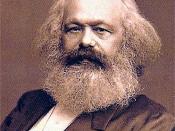"Political Ideologies play a significant role in determining the direction of leisure and tourism policy" Discuss
Introduction
For this essay I want to focus on policies of leisure from an ideological context. I will be looking at policies that have been created over the years and the views of different political ideologies on them. Different ideologies have different views on subjects related to leisure policy and public policy in general. Firstly I will look at different theories of the State, which might reflect the British State at different stages in its development.
To analyse the ideologies behind leisure policies I will use Lowi's (1972: cited in Henry 2001) method. He outlines four types or categories of public policy; distributive policies - benefiting all or most of the citizens indiscriminately; redistributive policies- generally favouring a segment of the population at the cost of the other segments; constituent policies- which define procedures in a democratic society such as election laws; and finally, regulative policies- controlling the behaviour of the members of the community (Henry 2001).
Leisure policies take predominantly one of three forms. They can be intended to be distributive, redistributive or regulative policies. I will try to incorporate these forms whenever analysing leisure policies from an ideological perspective. What will follow is a general discussion. At the end of this discussion I will aim to find out whether leisure policies really influenced by political ideologies or not.
Marxist theories
These have never been terribly popular in British politics and policy debates as positive solutions, but they do serve as a rich source of criticisms. This work provides us with some backing for a very common suspicion -- that the State is really on the side of ruling class groups, that it somehow represents the powerful groups against the rest of...

